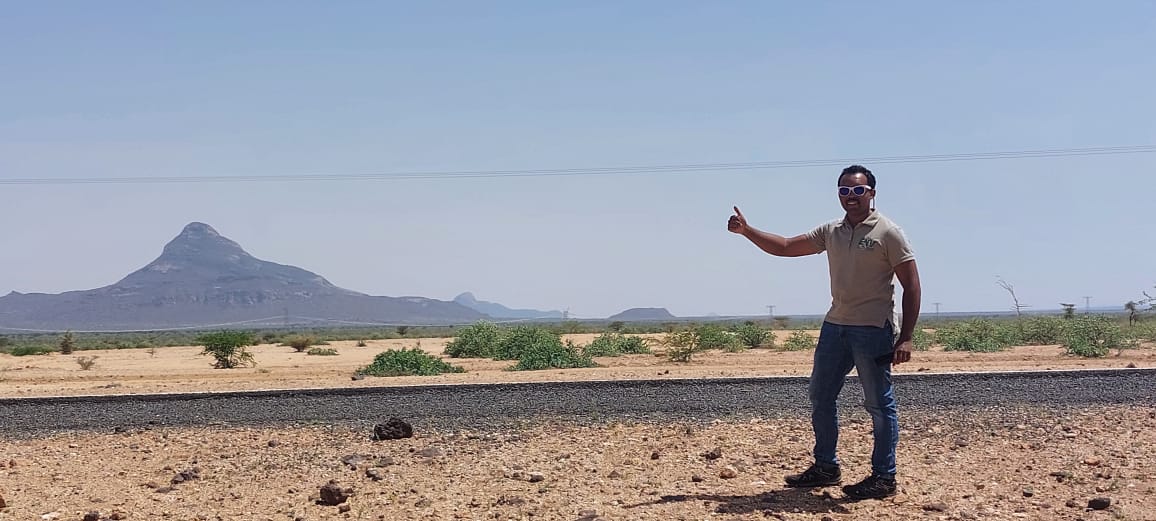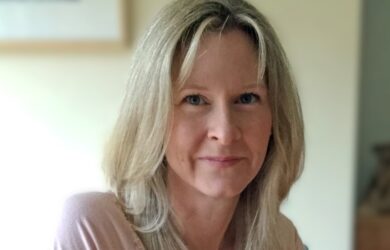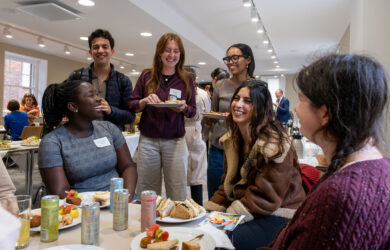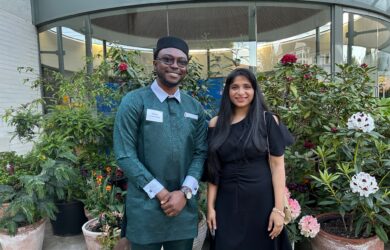
A Gates Cambridge colloquia last week heard from five scholars about their research and served to launch the new edition of The Scholar magazine.
These Scholars represent the diversity and breadth of research being pursued by Gates Cambridge Scholars, and our goal of improving the lives of others.
Sofia Dartnell
Five Gates Cambridge scholars unveiled their research on everything from conservation in Kenya and early foetal development to female-centred reworkings of the Classics at an event last week.
The Gates Cambridge colloquia was held on Friday in front of an audience of scholars and Trustees.
Mine Koprulu [2017] spoke about using genetics to understand the role of proteins in regulating disease. She said even a single letter genetic change can raise a person’s risk of certain diseases. However, scientists still know very little about how genes are regulated. Her research measured protein levels in the blood of 3,000 people in order to discover which proteins might constitute an important pathway for predicting who might have an increased risk of many common diseases, including diabetes. By finding out which protein might be linked with risk of certain diseases such as diabetes Koprulu said scientists can better diagnose and treat patients. Her research has been published in Nature Metabolism.
Alberto Borges [2022] spoke of his conservation work in Marsabit in northern Kenya where he discovered a new species of spider. While trying unsuccessfully to find other similar spiders, he started to focus on broader issues that might be affecting insect life, such as drought in the region. His conservation efforts focused on potential causes of drought, including deforestation in the nearby Marsabit mountain area [shown in the top photo]. Students and community groups took part in tree planting efforts. Alberto said his MPhil in Conservation Leadership has given him the knowledge and network to help support his ambition to set up a conservation centre in Marsabit which he is now fundraising for.
Bailey Weatherbee’s talk, Illuminating the black box of human embryogenesis ex vivo and in vivo, covered her research into the first two weeks of embryo development. Most research has focused on the first week after fertilisation, but Weatherbee is looking at the second week after the embryo implants in the uterus when it starts to change and sets up the body plan of the foetus. By the end of the second week scientists know where the head and tail will be and this is essential for human development. Weatherbee [2019] said 60% of conceptions fail by the end of the second week. Understanding why this happens could help scientists to comprehend how the body plan is set up. Because they cannot do genetic testing on embryos, they use stem cells to model what should happen.
Claudia Cornelissen [2021] spoke about her work on feminist revisionist literature, that is, canonical stories such as the Iliad that are adapted by mainly female authors and prioritise the female voice. She said there were not many academic studies of this literature, despite its current popularity. While the literature is typically seen as a very recent phenomenon, Cornelissen’s research shows that it has, in fact, a long history, and while white women’s contributions are typically foregrounded, Cornelissen argued that Black authors have historically also participated in the genre.That legacy gives it an air of transgression, said Cornelissen, but modern revisionist literature is less likely to challenge received ideas and structures. It mainly reaffirms the traditional story and is female-centric rather than feminist, which Cornelissen said may say more about contemporary western feminism, which often prioritises being seen over organising political change.
Shubhayu Bhattacharyay’s presentation, From big data to personal narratives, focused on patients with traumatic brain injury [TBI]. Shubhayu [2020] said TBI was “a global but underrecognised pandemic” and the leading cause of neurodisability, with more older people now affected and suffering complex problems. There is no one size fits all approach, high mortality rates and a lot of uncertainty in prognosis. The goal of Bhattacharyay’s research is to use big data and natural language processing to find patterns in TBIs in order to offer patients more personal treatment plans. He said the research could erase 50% of the uncertainty around prognosis.
The event also saw the launch of The Scholar magazine 2023. Editor-in-chief Maya Juman [2022] spoke about the theme for this magazine, Aftershocks, and highlighted several of the articles, including a photo essay by Sofia Dartnell on pollination and a series of podcasts with alumni on topics ranging from global health to climate change. You can read the magazine here.
Sofia [2022], who is internal officer on the Gates Cambridge Scholars Council and organised the colloquia, said: “It was a pleasure to put together this research colloquia for our Trustees’ annual visit to Cambridge. These Scholars represent the diversity and breadth of research being pursued by Gates Cambridge Scholars, and our goal of improving the lives of others. It was also wonderful to hear from the Editor-in-Chief of the Scholar magazine, Maya Juman, who took us through this year’s amazing online publication.”












